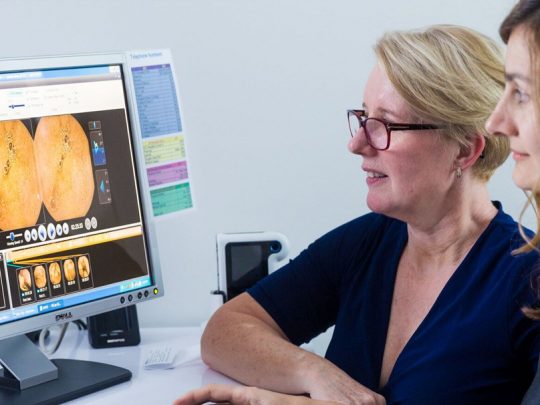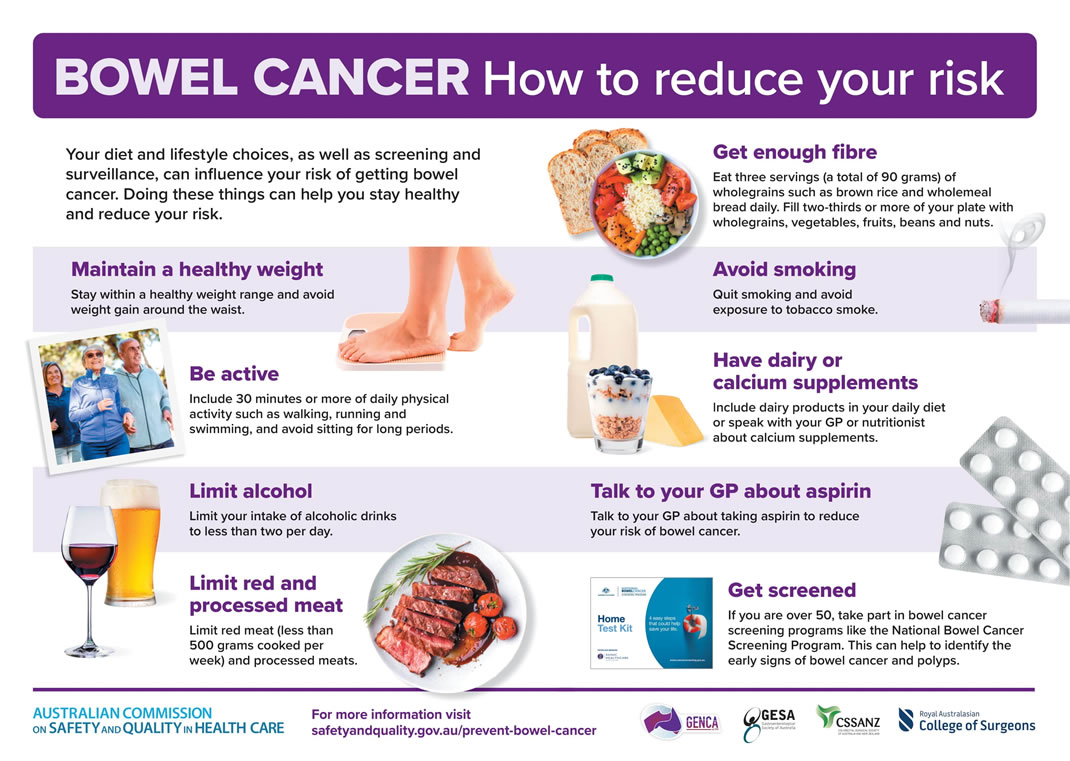Bowel Cancer
Colorectal Cancer (Bowel Cancer) Screening
Bowel cancer is the most common internal cancer in Australia. Almost all bowel cancers start as a “polyp” in the bowel.
- Bowel cancer is the most common internal cancer in Australia
- Bowel cancer is the second most common cause of death from cancer
- Survival depends on early detection: 5-year survival if the cancer is detected in its early stages is 95%, 5-year survival in advanced disease is only 5%
- Lifetime risk in men is 1 in 18
- Lifetime risk in women is 1 in 28
- Risk increases with age
- Family history of bowel cancer or polyps is important in assessing your risk of developing this disease and your need for colonoscopy
- Almost all bowel cancers start as a “polyp” in the bowel and the progression typically takes from 5-10 years

- There is a window of opportunity when a bowel polyp can be safely and effectively removed to avoid cancer
- Polyps are removed during a procedure called a “colonoscopy”. This procedure can be done as at a Day Surgery facility
- To detect bowel polyps your doctor may suggest a “Faecal Occult Blood Test” (a test for blood in the stool). These tests however miss up to 33% of polyps.
- The most effective way of finding bowel polyps is with a colonoscopy. It is the gold standard for colorectal cancer screening. Experienced colonoscopists miss less than 5% of polyps.
- The aim of a screening colonoscopy is to detect and remove pre-cancerous benign polyps. Screening should be done before any symptoms develop.
- Colorectal cancer screening is important for everyone but it is particularly important if you have an increased risk because of a family history of bowel cancer, a past personal history of bowel cancer, or ulcerative colitis.





